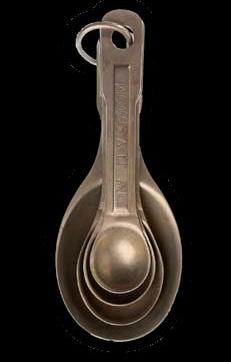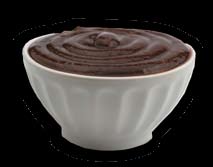10 calories
Note: Make sure
you drink the water,
or else this recipe
will not work
to relieve constipation.
w w w.cancer.gov
19

Diarrhea
What it is
Diarrhea occurs when you have frequent bowel movements that may be soft, loose, or watery. Foods and liquids pass through the bowel so quickly that your body cannot absorb enough nutrition, vitamins, minerals, and water from them.
This can cause dehydration (which occurs when your body has too little water).
Diarrhea can be mild or severe and last a short or long time.
Why it happens
Diarrhea can be caused by cancer treatments such as radiation therapy to the abdomen or pelvis, chemotherapy, or biological therapy. These treatments cause diarrhea because they can harm healthy cells in the lining of your large and small bowel. Diarrhea can also be caused by infections, medicine used to treat constipation, or antibiotics.
Ways to manage with food
u Drink plenty of fluids to replace those you lose from diarrhea. These include water, ginger ale, and sports drinks such as Gatorade® and Propel®. You can see a list of more clear liquids on page 49.
u Let carbonated drinks lose their fizz before you drink them. Add extra water if drinks make you thirsty or they cause nausea.
u Eat 5 or 6 small meals each day instead of
3 large meals.
u Eat foods and liquids that are high in sodium
and potassium. When you have diarrhea, your
body loses these substances, and it is important
to replace them. Liquids with sodium include
bouillon or fat-free broth. Foods high in potassium
include bananas, canned apricots, and baked, boiled, or mashed potatoes.
20
1-800-4-CANCER (1-800-422-6237)

u Eat low-fiber foods. Foods high in fiber can make diarrhea worse. Low-fiber foods include plain or vanilla yogurt, white toast, and white rice. You can find a list of more low-fiber foods on page 54.
u Have foods and drinks at room temperature, neither too hot nor too cold.
u Avoid foods or drinks that can make diarrhea worse. These include:
• Foods high in fiber, such as whole wheat breads and pasta
• Drinks that have a lot of sugar, such as regular soda and fruit punch
• Very hot or very cold drinks
• Greasy, fatty, or fried foods, such as French fries and hamburgers
• Foods and drinks that can cause gas. These include cooked dried beans and raw fruits and vegetables.
• Milk products, unless they are low-lactose or lactose-free
• Beer, wine, and other types of alcohol
• Spicy foods, such as pepper, hot sauce, salsa, and chili
• Foods or drinks with caffeine. These include regular coffee, tea, some sodas, and chocolate.
• Sugar-free products that are sweetened with xylitol or sorbitol. These are found mostly in sugar-free gums and candy. Read product labels to find out if they have these sweeteners in them.
• Apple juice, since it is high in sorbitol
u Drink only clear liquids for 12 to 14 hours after a sudden attack of diarrhea.
This lets your bowels rest and helps replace lost fluids. Let your doctor know if you have sudden diarrhea.
Ask your doctor or nurse before taking medicine for diarrhea.
w w w.cancer.gov
21


Other ways to manage
u Talk with a dietitian. He or she can help you choose foods to prevent dehydration. The dietitian can also tell you which foods
are good to eat and which ones to avoid when you
have diarrhea.
u Be gentle when wiping yourself after a bowel
movement. Instead of toilet paper, clean yourself with wet wipes or squirt water from a spray bottle. Tell your
doctor or nurse if your rectal area is sore or bleeds or if
you have hemorrhoids.
u Tell your doctor if you have had diarrhea for more
than 24 hours. He or she also needs to know if you
have pain and cramping. Your doctor may prescribe
medicine to help control these problems. You may
also need IV fluids to replace lost water and nutrients.
This means you will receive the fluids through a
needle inserted into a vein. Do not take medicine for
diarrhea without first asking your doctor or nurse.
22
1-800-4-CANCER (1-800-422-6237)




Dry Mouth
What it is
Dry mouth occurs when you have less saliva than you used to. This can make it harder to talk, chew, and swallow food. Dry mouth can also change the way food tastes.
Why it happens
Chemotherapy and radiation therapy to the head or neck area can damage the glands that make saliva. Biological therapy and some medicines can also cause dry mouth.
Ways to manage with food
u Sip water throughout the day. This can help moisten your mouth, which can help you swallow and talk. Many
people carry water bottles with them.
u Have very sweet or tart foods and drinks (such as
lemonade). These help you make more saliva. But do not eat or drink anything sweet or tart if you have a sore mouth or sore throat. It might make these problems worse.
u Chew gum or suck on hard candy, popsicles, and ice
chips. These help make saliva, which moistens your mouth.
Choose sugar-free gum or candy since too much sugar can
cause cavities in your teeth. If you also have diarrhea, check with your dietitian before using sugar-free products as some sweeteners can make it worse.
u Eat foods that are easy to swallow. Try pureed cooked foods or soups. You can find a list of foods and drinks that are easy to chew and swallow on page 56.
u Moisten food with sauce, gravy, or salad dressing. This helps make food easy to swallow.
u Do not drink beer, wine, or any type of alcohol. These can make your mouth even drier.
w w w.cancer.gov
23


u Avoid foods that can hurt your mouth. This includes foods that are very spicy, sour, salty, hard, or crunchy.
Other ways to manage
u Talk with a dietitian. He or she can discuss ways to eat even when a dry mouth makes it hard for you to chew.
u Keep your lips moist with lip balm.
u Rinse your mouth every 1 to 2 hours. Mix 1/4 teaspoon baking soda and 1/8 teaspoon salt with 1 cup warm
water. Rinse with plain water after using this mixture.
u Do not use mouthwash that has alcohol. Alcohol makes a dry mouth worse.
u Do not use tobacco products, and avoid second-hand smoke.
Tobacco products and smoke can hurt your mouth and throat.
u Talk with your doctor or dentist. Ask about
artificial saliva or other products to coat, protect,
and moisten your mouth and throat. These
products can help with severe dry mouth.
Ways to learn more
National Oral Health Information Clearinghouse
A service of the National Institute of Dental and Craniofacial Research that provides oral health information for special care patients. Ask about their booklets, Chemotherapy and Your Mouth and Head and Neck Radiation Treatment and Your Mouth.
Call:
301-402-7364
Visit:
www.nidcr.nih.gov
E-mail:
nidcrinfo@mail.nih.gov
24
1-800-4-CANCER (1-800-422-6237)

Lactose Intolerance
What it is
Lactose intolerance occurs when your body cannot digest or absorb a milk sugar called lactose. Lactose is in milk products such as cheese, ice cream, and pudding.
Symptoms of lactose intolerance can be mild or severe and may include gas, cramps, and diarrhea. These symptoms may last for weeks or even months after treatment ends. Sometimes, lactose intolerance is a life-long problem.
Why it happens
Lactose intolerance can be caused by radiation therapy to the abdomen or pelvis or other treatments that affect the digestive system, such as surgery or antibiotics.
Ways to manage with food
u Prepare your own low-lactose or lactose-free foods. You can find a sample recipe on the next page.
u Choose lactose-free or low-lactose milk products. Most grocery stores have products (such as milk and ice cream) labeled “lactose-free” or “low-lactose.”
u Try products made with soy or rice (such as soy or
rice milk and ice cream). These products do not have any lactose. People with certain types of cancer may not
be able to eat soy products. So, ask your dietitian if soy
is safe for you to add to your diet.
u Choose milk products that are low in lactose.
Hard cheeses (such as cheddar) and yogurt are less
likely to cause problems.
w w w.cancer.gov
25





Other ways to manage
u Talk with a dietitian. He or she can help you choose
foods that are low in lactose.
u Talk with your doctor. He or she may suggest
medicine to help with lactose intolerance. These
include lactase tablets. Lactase is a substance that breaks down lactose.
Reci pe
To help with lactose intolerance
Lactose-Free Double chocolate pudding
2 squares baking chocolate (1 ounce each)
1 cup nondairy creamer, rice, soy, or lactose-free milk



















